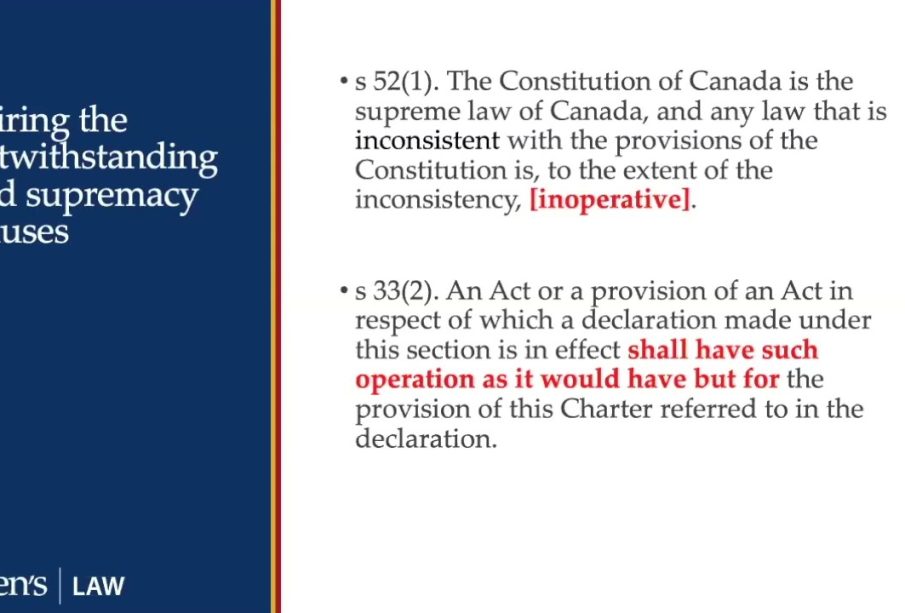The Notwithstanding Clause: An Essential Part of Canada’s Constitution

Introduction
The notwithstanding clause, established under Section 33 of the Canadian Charter of Rights and Freedoms, allows provincial and federal legislatures to override certain sections of the Charter for a period of five years. This controversial yet crucial legislative tool not only underscores Canada’s commitment to democratic governance but also highlights the ongoing dialogue about the balance between individual rights and collective governance. Given the current legal and political landscape, understanding the implications and usage of the notwithstanding clause is more relevant than ever.
Recent Developments
Recently, discussions have emerged surrounding the use of the notwithstanding clause in response to various legislative initiatives across provinces. For instance, in 2023, the provincial government of Ontario invoked the clause to temporarily prevent judicial challenges against its education reforms. Critics of this action argue that it undermines fundamental rights, while supporters claim it is necessary to pass legislation aligned with the will of the voters.
In another notable instance, the Quebec government similarly applied the clause in confirming its language laws, which restrict the usage of English in certain public domains. These events have sparked public debate and raised questions about the scope and limits of governmental power under the Charter.
The Political and Societal Implications
The use of the notwithstanding clause reveals a tension between democratic principles and constitutional rights. Proponents argue that it empowers elected representatives to make decisions that reflect the public’s wishes, while opponents contend that it poses a threat to the protection of minorities and individual freedoms. Legal experts emphasize the importance of a carefully structured application of the clause, advocating for transparency and accountability to ensure it is not misused.
Conclusion
The significance of the notwithstanding clause in Canadian law cannot be understated. As governments at both provincial and federal levels navigate the complexities of governance, the way in which this clause is utilized will have lasting implications on the fabric of civil liberties in Canada. Moving forward, it is essential for policymakers to engage in thorough discussions about the necessity, application, and frequency of using the notwithstanding clause to ensure that democratic values and individual rights remain intact. The ongoing discourse surrounding this issue is indicative of a healthy democracy, where citizens, lawmakers, and judges actively engage in shaping the future of the nation’s legal landscape.









